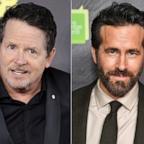Elizabeth Edwards' New Role: Campaign Weapon
She redefines the role of a candidate's wife by confronting Coulter.
June 28, 2007 — -- The role of the candidate's wife has varied widely in the last few presidential campaigns, from demure Laura Bush and protective Barbara Bush to co-presidential Hillary Clinton and outspoken Theresa Heinz Kerry.
Now Elizabeth Edwards seems to be setting a new standard as a powerful weapon for her husband's presidential campaign.
The 57-year-old wife of former North Carolina Sen. John Edwards has become an enormous asset, gaining support in her fight against cancer and earning praise for her intelligence and charm.
But what was behind Edwards' phone call to MSNBC during conservative commentator Ann Coulter's appearance?
Some political analysts say the call was clearly an effort to rally supporters before a second-quarter fundraising deadline this Saturday.
After all, the campaign has been able to rally thousands of supporters to donate money Wednesday, the day after Elizabeth Edwards called in to MSBNC's "Hardball" to confront Coulter and tell her to stop making personal attacks against her husband.
"How about you stop raising money on your Web page, then?" shot back Coulter, who also mocked the fact that Edwards' wife, rather than the candidate himself, was calling in to complain.
Some political observers feel that the phone call was a carefully planned political maneuver and that the Edwards campaign was looking to raise money by going after Coulter, the bete noire of liberal Democrats.
"This was very calculated," said professor Robert Denton Jr. of Virginia Tech who studies political communication. "Ann Coulter has become a good motivator for the Democratic base so for Mrs. Edwards to call in to confront her – it was an orchestration."
Denton could not recall a candidate's wife taking such an aggressive stance in recent political history. "This is unprecedented for a candidate's wife to be on the attack to this extent," he said. "There are certain role expectations. Barbara Bush and Nancy Reagan were active behind the scenes but they would not have taken that kind of initiative."




